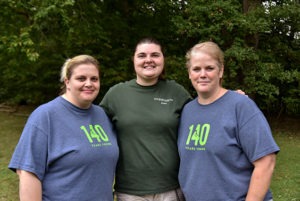
Here at the Zoo we have four amazing veterinary technicians who work hard everyday to keep the animals happy and healthy! During this year’s National Veterinary Technician Week, we asked them a few questions to learn all about what their job entails day to day at the Zoo’s hospital.
What is your favorite animal?
Devon: They are all my favorite.
Jen: [Leopard] Sofiya! (always and furever)
Kaitlin: Birds have anyways been my favorite type of animal especially raptors. I have come to really like all animals, especially Rhino, Giraffe, and chimps because I get to work with them in our training programs. It’s one of many reasons I like being an RVT at a zoo, I get to work with all animals!!!
Jenny: Anything with hooves.
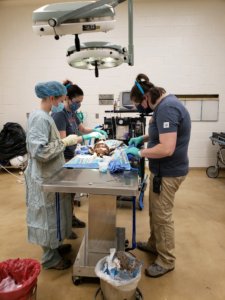
What training project you are proud of?
Devon: I am particularly proud of the progress made with the kunekune pigs. Although they are a domesticated species they don’t always like to be touched and their tusks can be dangerous. Having a voluntary medical behavior training program allows medical staff the ability to perform necessary medical procedures like vaccines, physical exams, and blood collection without the need for sedation. This type of program provides a safe environment for both animals and staff while giving animals the choice to participate in their own medical care. This takes a lot of time and consistent collaboration between the keepers and veterinary technicians to build the animals trust. It has taken 6 yrs to get to where we are today. But all that hard work has allowed us to do hands-on visual exams with the kunekune pigs including listening to their heart and lungs, checking their body condition, taking their temperature (rectally), and administering vaccines…all with voluntary participation from the kunekune pigs.
Jen: A moment in her tech career that she is most proud of was when she successfully got a voluntary blood draw from Anoki, a polar bear who used to live at the Maryland Zoo!
Kaitlin: I think my proudest moments with training animals has to be medical training with our chimp troop. You have to develop such a strong bond with them that is very rewarding when they hold for an injection or a blood draw.
Jenny: Sitatunga Hurley, with injection training we were able to administer arthritis medication every 2 weeks to improve his quality of life for several years.
What is your favorite part of being a vet tech?
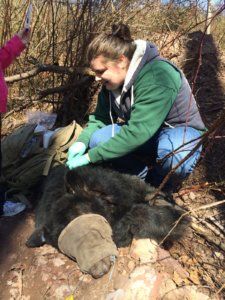
Devon: I have no favorite part of my job as a vet tech. Every day is unique, challenging, and incredible in its own way. I could be providing life saving treatment to a sick or injured animal one moment, intubating and running anesthesia during a surgical procedure, collecting blood or placing intravenous catheters on the fly, running the lab work in house including doing a complete and thorough examination of the animals blood, feces, and urine (I know…gross), going out in the field and assisting with conservation projects. The possibilities of my day are endless and the job description for a zoo veterinary technician is way beyond basic. I love every second of it.
Jen: Her favorite part of tech work is working with keepers and animals on medical training projects, (as well as when she can get a difficult blood draw!)
Kaitlin: I love the variety of my day and what I do in a day. I could be analysis blood from an elephant one day, monitoring anesthesia on a lion the next. I love all aspects of our job.
A second aspect is working in a team. When an animal is sick or we have a big procedure. You work alongside with so many people, vets, keepers, managers. We are all working together and everyone is helping each other to get the task done.
Jenny: I love it all, but I am a lab geek at heart.
What is something you wish more people knew about being a zoo vet tech?
Devon: Zoo techs are required to be credentialed (licensed). We have to graduate from an AVMA accredited 2-4 yr veterinary technology program and pass a national exam to become credentialed. Some states even require an additional practical exam to be fully credentialed. After all that we are also required to do continuing education yearly to remain credentialed.
Kaitlin: I think all techs would tell you is that we do it all. We prep for procedures, we monitor anesthesia, take radiographs, place iv catheters, draw blood, administer medications. Then when a procedure is done we are processing the blood, cleaning up after the procedure, we are filling prescriptions and checking on our patients.
Jenny: That it is the best job known to man, but it will ruin your knees and back.

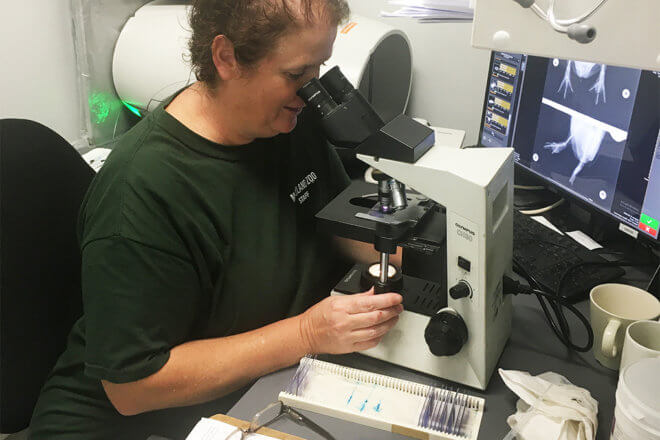
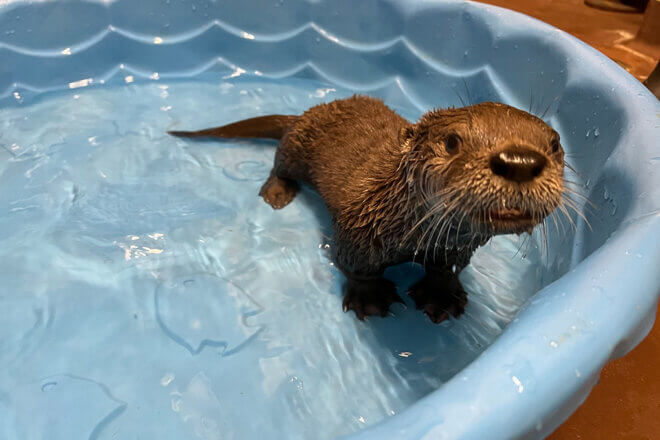
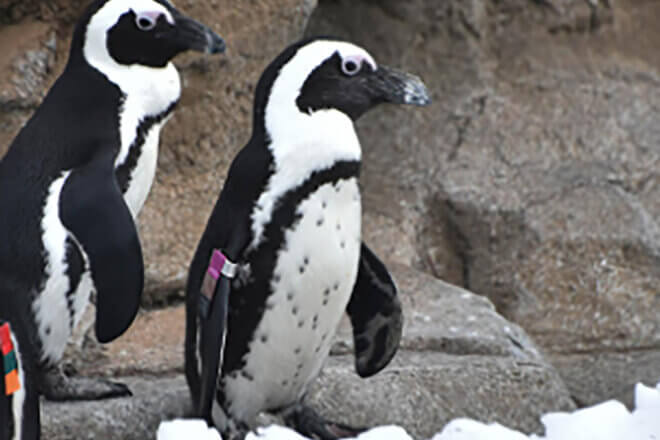
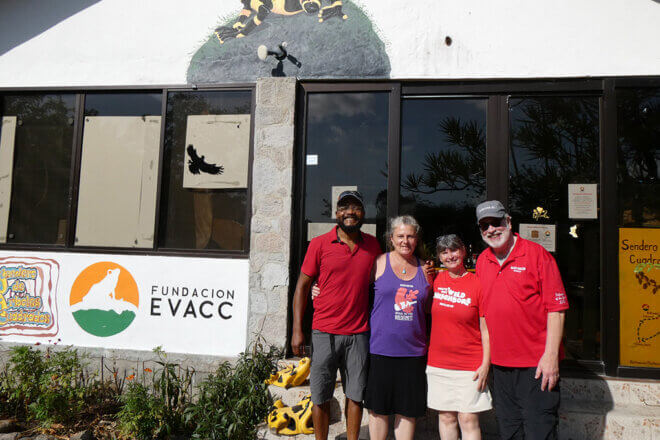
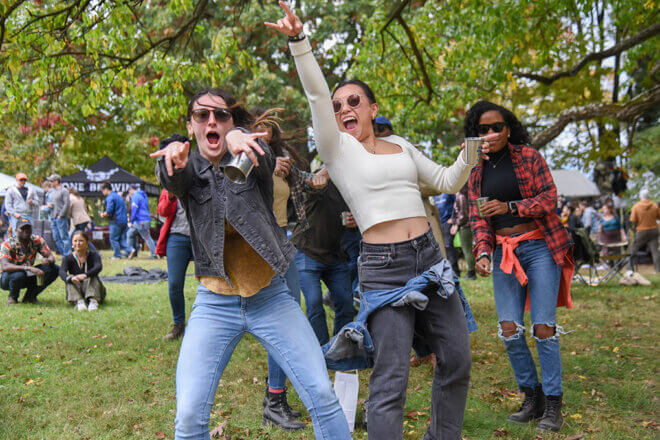
Share this article